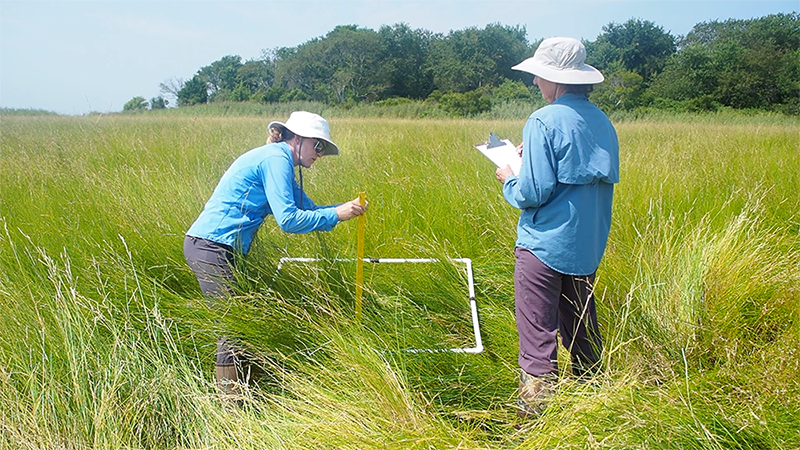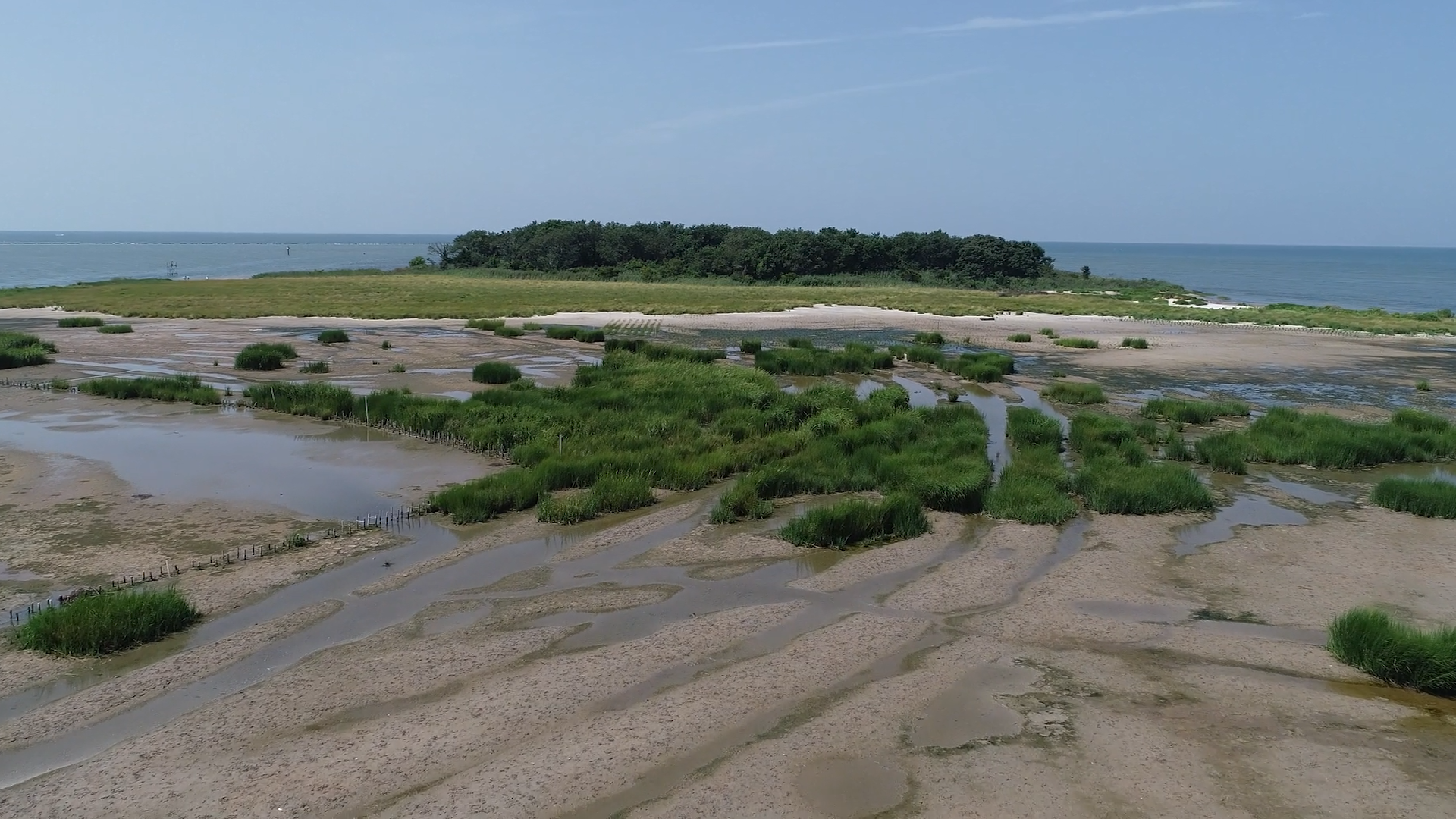Natural breakwaters — such as marshes, islands, and oyster reefs — help protect people and property from coastal flooding by damping wave energy and slowing storm surge. Despite these advantages, natural approaches to coastal restoration are not widely used, often, because of uncertainty about their long-term success.
The restoration of Swan Island in Chesapeake Bay is providing researchers with an opportunity to evaluate the long-term performance of natural materials and methods. In 2019, NOAA’s National Centers for Coastal Ocean Science and the U.S. Army Corps of Engineers used dredged sediments and marsh and dune plants to restore the 12-acre footprint of the island, which had been diminished by sea level rise and shoreline erosion.
Since then, the project team has been monitoring the progress of the effort and making landscape adjustments to secure the new habitat, which is expected to support wildlife and shield the nearby town of Ewell, Maryland, from waves.
To optimize habitat development, the group used different plants and planting strategies for different parts of the island. The lessons learned thus far, especially about vegetation’s critical role, are available in a new publication that can help guide similar restoration projects in other areas.


